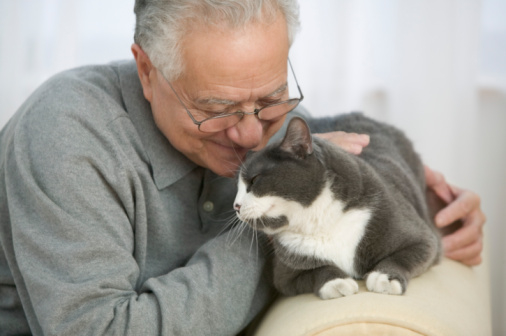
It’s a myth that all cats are aloof and the ones that are aloof may likely be under socialized and/or anxious about their environment.
Many people believe that cats are aloof because they compare cat behavior to dog behavior and just expect cats to act like dogs. They are however, two very different animal species with their own specific gifts, drives and behaviors.
Dogs have been domesticated through selective breeding and have been purposely bred to live with and work with humans. Cats on the other hand, have only been “domesticated” for roughly 10,000 years (at least that we have scientific record of) with the primary goal of hunting vernon. It’s only been within the last 50 years that selective breeding, breeding for specific traits, including adaptability to live with humans, has been a focus of breeding programs. The differences in the animal species and what they have been bred for directly affect behavior. Until cat domestication catches up with dog domestication, we’ll just have to accept cats for what they are- their own individual species with their own individual traits and behaviors.
Cats can be quite affectionate.
If your cat is not as affectionate as you’d like or if he is displaying shy or hiding behaviors, call a cat trainer for assistance. You can have the relationship you want with your cat and a professional can help guide the way.

